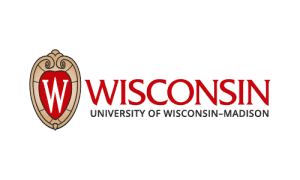Request Demo
Last update 27 Feb 2026
AR vaccine(Madison Vaccines, Inc.)
Last update 27 Feb 2026
Overview
Basic Info
Drug Type DNA vaccine, Therapeutic vaccine |
Synonyms AR vaccine, pTVG-AR, MVI 118 + [1] |
Target |
Action antagonists, stimulants |
Mechanism AR antagonists(Androgen Receptor antagonists), Immunostimulants |
Therapeutic Areas |
Inactive Indication- |
Originator Organization |
Active Organization |
Inactive Organization- |
License Organization- |
Drug Highest PhasePhase 2 |
First Approval Date- |
Regulation- |
Login to view timeline
R&D Status
10 top R&D records. to view more data
Login
| Indication | Highest Phase | Country/Location | Organization | Date |
|---|---|---|---|---|
| Adenocarcinoma of prostate | Phase 2 | United States | 16 Dec 2021 | |
| Adenocarcinoma of prostate | Phase 2 | United States | 16 Dec 2021 | |
| Adenocarcinoma of prostate | Phase 2 | United States | 16 Dec 2021 | |
| Prostatic Cancer | Phase 2 | - | - | |
| Prostatic Cancer | Phase 2 | - | - | |
| Metastatic castration-resistant prostate cancer | Phase 1 | United States | 30 Jan 2022 | |
| Metastatic Prostate Carcinoma | Phase 1 | United States | 24 Aug 2015 |
Login to view more data
Clinical Result
Clinical Result
Indication
Phase
Evaluation
View All Results
Phase 2 | 60 | (Arm 1: One DNA Vaccine) | kokxolpyqu = idaynwihpe nbtqapknyx (ijmbjccsjy, phxehoxfvs - ahkbpladua) View more | - | 05 Dec 2025 | ||
(Arm 2: Two DNA Vaccines) | kokxolpyqu = pjqoqqqlth nbtqapknyx (ijmbjccsjy, uwvxlyykzp - wbnhhifpwy) View more | ||||||
Phase 1/2 | 24 | Androgen deprivation with degarelix | lylqzrzggm(tubldqhmsb) = dajpnmnxhy qutlhjotfc (wwpvoezmdg ) | Positive | 05 Nov 2024 | ||
Androgen deprivation, pTVG-AR, and nivolumab | lylqzrzggm(tubldqhmsb) = rehgzntchk qutlhjotfc (wwpvoezmdg ) | ||||||
NCT02411786 (ESMO2019) Manual | Phase 1 | 40 | laigsncrxd(olulnfqwwz) = none owwylkjkyx (whtrbebjgp ) View more | Positive | 30 Sep 2019 |
Login to view more data
Translational Medicine
Boost your research with our translational medicine data.
login
or

Deal
Boost your decision using our deal data.
login
or

Core Patent
Boost your research with our Core Patent data.
login
or

Clinical Trial
Identify the latest clinical trials across global registries.
login
or

Approval
Accelerate your research with the latest regulatory approval information.
login
or

Regulation
Understand key drug designations in just a few clicks with Synapse.
login
or

AI Agents Built for Biopharma Breakthroughs
Accelerate discovery. Empower decisions. Transform outcomes.
Get started for free today!
Accelerate Strategic R&D decision making with Synapse, PatSnap’s AI-powered Connected Innovation Intelligence Platform Built for Life Sciences Professionals.
Start your data trial now!
Synapse data is also accessible to external entities via APIs or data packages. Empower better decisions with the latest in pharmaceutical intelligence.
Bio
Bio Sequences Search & Analysis
Sign up for free
Chemical
Chemical Structures Search & Analysis
Sign up for free



